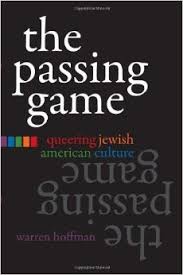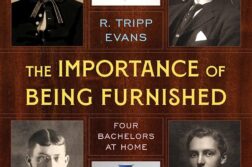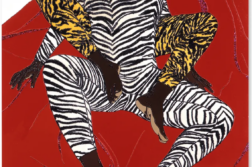 The Passing Game: Queering Jewish American Culture
The Passing Game: Queering Jewish American Culture
by Warren Hoffman
Syracuse University Press. 206 pages,$ 24.95
I GREW UP in a multicultural family that spoke several languages. As a family, we identified with being Jewish, Polish, Russian, Turkish, and American. We were Sephardic and Ashkenazi. Some of us were observant and others were political radicals. From an early age, I was acutely aware that my family background didn’t look anything like the Dick and Jane world of the school books. Yet, the mantra of my first-generation mother and naturalized father was “Blend.” The language in my home was Yiddish. At six, I was bilingual in Yiddish and English. Unfortunately, this led to many unwanted slips of the tongue in the classroom. One time, my first grade teacher asked me to read the word for spoon. I saw the English word but spoke its Yiddish equivalent; laughter broke out; I was humiliated. After class, several of my classmates ganged up on me and called me a “dirty Jew.” Within a year, I stopped speaking any Yiddish. I thought that this was a triumph—I had learned an important lesson in “the passing game.”







